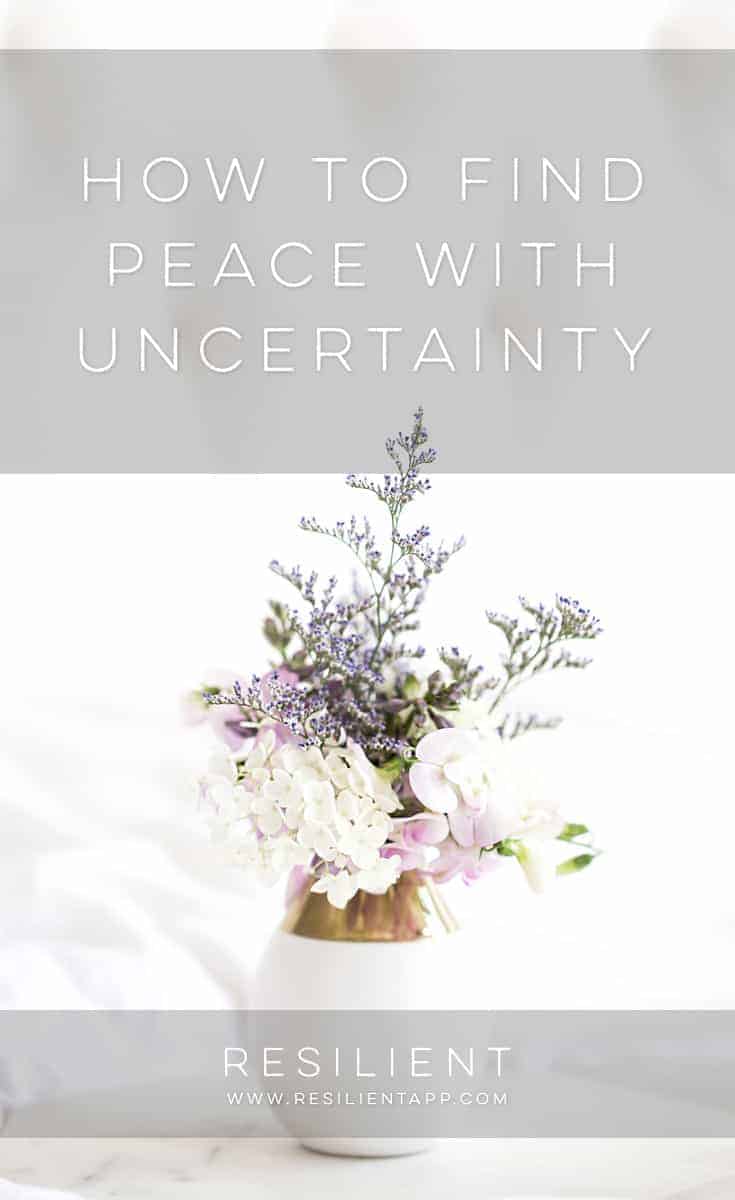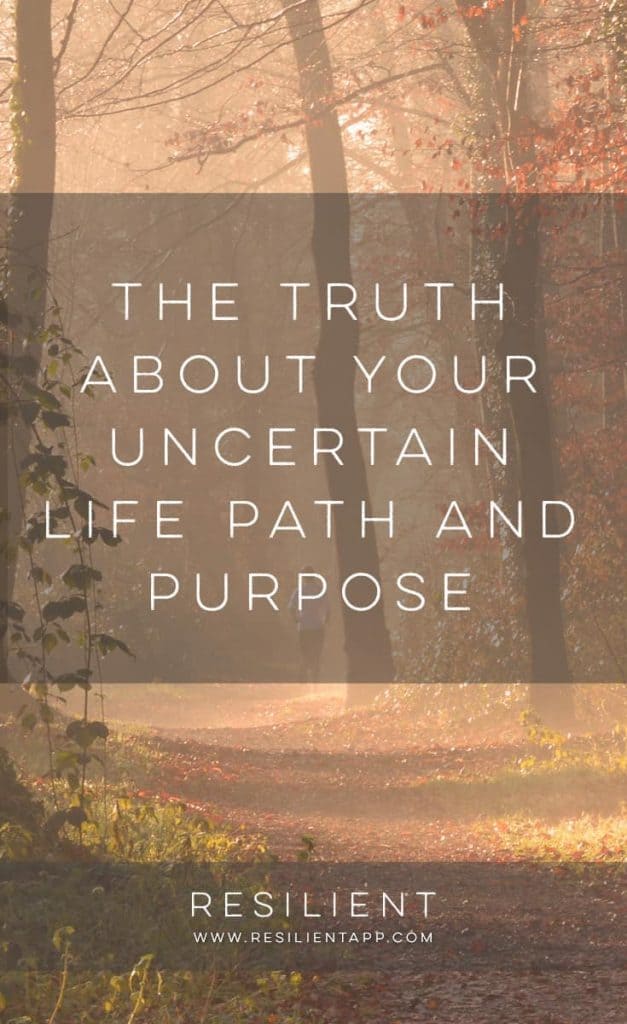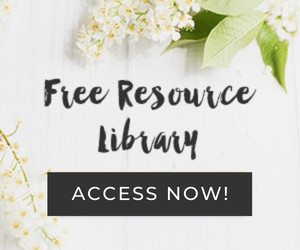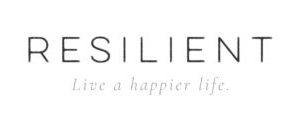How to Find Peace with Uncertainty in Life
This post was written by Leo Babauta, originally for Zen Habits. Republished here with permission.
Fear of an uncertain future: it can stop us from doing great things, and it can keep us holding onto things that are hurting us. Here’s how to find peace with uncertainty in life.

Subscribe to our Youtube channel!
How to Find Peace with Uncertainty in Life
For example: you might be holding onto clutter for reasons of comfort and security, even if the clutter gives you anxiety and costs a lot of money.
And: you might be staying in a job you don’t like, because you’re afraid of taking the plunge, because you’re afraid of failing.
And again: you might not travel to a country that feels very unfamiliar because you don’t know what will happen — and miss out on an amazing life-changing experience.
This is just the start of how fear of an uncertain future affects our lives.
A reader recently asked “how to be at peace with uncertainty, how to let go of fear of the future.” It’s a great question, because we all deal with this fear. All of us.
Products We Recommend:
What’s Going On Here
Where does this fear of uncertainty and the future come from? It might seem like a silly question, but if you think about it, there’s nothing inherently scary about the future, even if you don’t know what’s going to happen. It’s not more likely to be painful or disastrous than the present already is — it just seems that way.
Think about it: the odds of you getting into a car accident is not greater tomorrow than it is today. The odds of anything bad happening are not greater next week than they were this week. The odds of something great happening are also just as great next month as they were this month.
So why is it scary? Why is not knowing so scary? If you roll a dice and don’t know what it will be, is that scary? No, it’s not the “not knowing” that’s the problem … it’s the possibility that what comes up on that dice will bring us pain, suffering, loss.
And this imagined pain isn’t physical pain (most of the time we’re not fearing physical injury) … it’s the pain of loss and change.
We are comfortable in this cocoon we’ve built up around ourselves — these routines and possessions and people we know and places that are familiar and safe.
Losing this comforting environment, and going into a place where we’re vulnerable and might fail, might not be good enough, is painful and scary.
We grasp, clinging to this comfortable idea of how things should be, and of course it will change, and we will feel the pain of that change.
The change itself isn’t the problem — it’s fighting the change, fearing the change, not wanting things to be different.
More Posts You Might Like:
- The 3 Day Rule That Can Change Your Life
- 25+ Self Improvement Tips
- 30+ Journaling Prompts
- How to Improve Your Life Overnight
- 10+ Personal Growth Books
How to Get Good at Uncertainty
And so we see that the answer is becoming good at change. If we are good at dealing with new things, with things as they come no matter how different they are, then we don’t fear it. Then change itself becomes comfortable.
If we become comfortable with change, it’s not scary. We can then embrace it, find joy in it. You can see this in people who we call “adventurous” — they seek new experiences, because they know they’ll be fine, and that it can be amazing.
(Note that this is different than the “adventure-seeker” types who have turned excitement into their form of comfort — when the excitement is taken away, then they feel the pain and loss of this change.)
So how do we get good at change? Some suggestions that are working for me (I’m still learning):
Try something new, but small and safe. New things can be scary because we’re afraid we’re going to fall on our faces. But if it’s something small — learning to juggle beanbags in our living room, learning to balance on a rope that’s close to the ground, listening to a language-learning podcast, for example — it’s not as scary.
There’s no real risk of getting hurt. And the more we do this, in small, non-scary steps, the more confidence we’ll gain that new things are not painful.
When you mess up, don’t see it as painful failure. When you’re doing new things, there will be times when you make mistakes, mess up, “fail”.
But these words are associated with negative things, like pain … instead, start to look at mistakes and “messing up” as something positive — it’s the only way to learn. Messing up is a way to get better at something, to grow, to get stronger.
See the wonder and opportunity in change. Change might mean leaving a comfort zone, and losing something (or someone) you love, but there’s much more: it’s the bringing of something new and amazing, a new opportunity to explore and learn and meet new people and reinvent yourself. When change happens, look for the wonder in it, the new doors that have opened.
Ask “what’s the worst-case scenario”? If you’re exposing yourself, getting out of your comfortable environment, leaving behind security … it can be scary, but when you think about what is the worst thing that is likely to happen, usually it’s not that bad.
If you lost all your possessions today in a disaster, how bad would that be? How would you cope? What opportunities would there be? What new things could you invent from this blank slate?
Develop a change toolset. Learn how to cope with changes, no matter what they are. Have a fall-back plan if things collapse. Have friends and family you can call on. Develop some skills where you can get a job or start a new business no matter what happens with your current job or the economy.
Learn ways of making friends with strangers, finding your way around a strange city, surviving on little. With a toolset like this, you can feel confident that you can handle just about anything that comes.
Become aware of your clinging. Watch yourself clinging to something when you feel fear and pain. What are you clinging to? Often it’s just an idea — the idea of you and a romantic partner, an image of who you are. Become aware of what’s going on.
See the downsides of clinging. Once you see your clinging more clearly, see the pain that results from it. If you’re clinging to your stuff, see the space it takes up, and the extra rent that costs you … see the mental energy it takes to live with all the stuff, the money you’ve spent on it, the lack of space you have to live. Anything you cling to has a downside — we only see the good side of it, and so we want to cling to it.
Experience the joy in the unknown. When something new happens, when you don’t know — we often see this as bad. But can we re-frame it so that it’s something joyful? Not knowing means we are free — the possibilities are limitless. We can invent a new path, a new identity, a new existence. This can be joyful.
I’ve learned that when you’re in the unknown, you don’t know what might come … and so you have to flow with this change. This flexibility is one of the most important tools you can develop. When the unknown future throws something unexpected your way, you deal with it without fear, without anguish, without anger.
You respond instead of reacting, with balance and calmness, and the joy of knowing that all will be fine, and in the process you will have experienced something new and beautiful.

The Truth About Your Uncertain Life Path and Purpose
If you’re in your 20s or even 30s or later, you might feel a lot of uncertainty all the time — you aren’t sure what your life purpose is, or your uncertain about what path you should take in life. This is normal. We all want to know what our driving ambitions should be in life. We all want to have a certain life purpose. Here’s the truth about your uncertain life path and purpose.
We all want to feel we’re on the right path.
We all want to perfect our habits, our routines, our productivity.
We all want to feel more certain, and perfect what we’re doing.
The comfort of certainty and perfection vs. the fear of uncertainty and being suboptimal. This is the struggle.
Let me let you in on a secret: no one is free from this struggle. Look at the most successful people you can think of — Elon Musk, Bill Gates, Obama, Taylor Swift. Do you think they have it all figured out?
Do you think they have certainty and a feeling of reaching perfection? Not a chance. There is not one of us alive, not me or anyone else, who ever feels certainty about their purpose or path. If they do, they’re fooling themselves. But if they’re honest, they don’t feel that certainty.
No one ever feels they’ve found the perfect productivity routine, the perfect version of themselves … because it doesn’t exist.
With that in mind, I’ll make some recommendations — with the caveat that I haven’t figured all of this out myself, and that I’m uncertain about these recommendations:
Realize that it’s all uncertainty. When you’re procrastinating, it’s because of uncertainty (of whether you can do this). When you are jealous of what others are doing on social media, it’s because of uncertainty (of whether you’re getting the most out of life).
When you are feeling anxiety, it’s because of uncertainty (about the future). When you’re feeling guilty or bad about yourself, it’s because of uncertainty (of whether you’re a good person, a disciplined person, as good as you can be, etc.). It’s all uncertainty.
Realize that none of us like this uncertainty. We all feel uncertainty, all day, and we all struggle with it. Some people have grown more comfortable with it than others, but in general no one likes uncertainty. If someone says they do, they’re probably not honest with themselves.
We don’t like it, so we try to find certainty in some way — through finding something we’re more comfortable with, something we think we know. Distraction, food, shopping, alcohol, being surly with other people, shutting down.
Notice when you’re feeling it. Being aware of this feeling of uncertainty is actually a great skill to develop. As you work on this awareness, you’ll feel uncertainty about your awareness skill. Are you doing it right? Are you bad at it? You don’t know. This is just more uncertainty to be aware of.
Just try this: when you feel any anxiety, fear, self-doubt, procrastination, need for distraction, anger with others … just label it “uncertainty.” See if you can tell what you’re being uncertain about.
Stay with it. This uncertainty you’re feeling is unpleasant. That’s perfectly OK, perfectly normal. Don’t run from it. Instead, stay with this uncomfortable, unappealing uncertainty.
It’s here in you, a part of this moment, a part of you but not the whole of you. Just stay, stay. Be with it, like you’d be with a friend who is in tears.
Turn to the moment, and find the excruciatingly beauty in it. After staying with the uncertainty for awhile, realize that you’re trying to know the unknowable. You can’t know what the perfect path will be, you can’t know what the perfect you should be, you can’t know what your purpose in life is until it starts to uncover itself.
You can’t know your destination until you get there. So instead of spinning your wheels with the unknowable, focus on what you actually have right in front of you.
Look at the physical space around you, and feel the energy of this space. This includes the energy of what you’re feeling inside you, but also the fluid space around you, occupied by objects, light, people, sounds, movement.
There is a crazy amount of beauty to be noticed here, if you pay attention, before it slips away.
This is the practice. It isn’t easy. It isn’t certain. But it is beautiful.
P.S. Get free downloads, checklists, inspirational emails & more when you sign up for our Free Resource Library!

